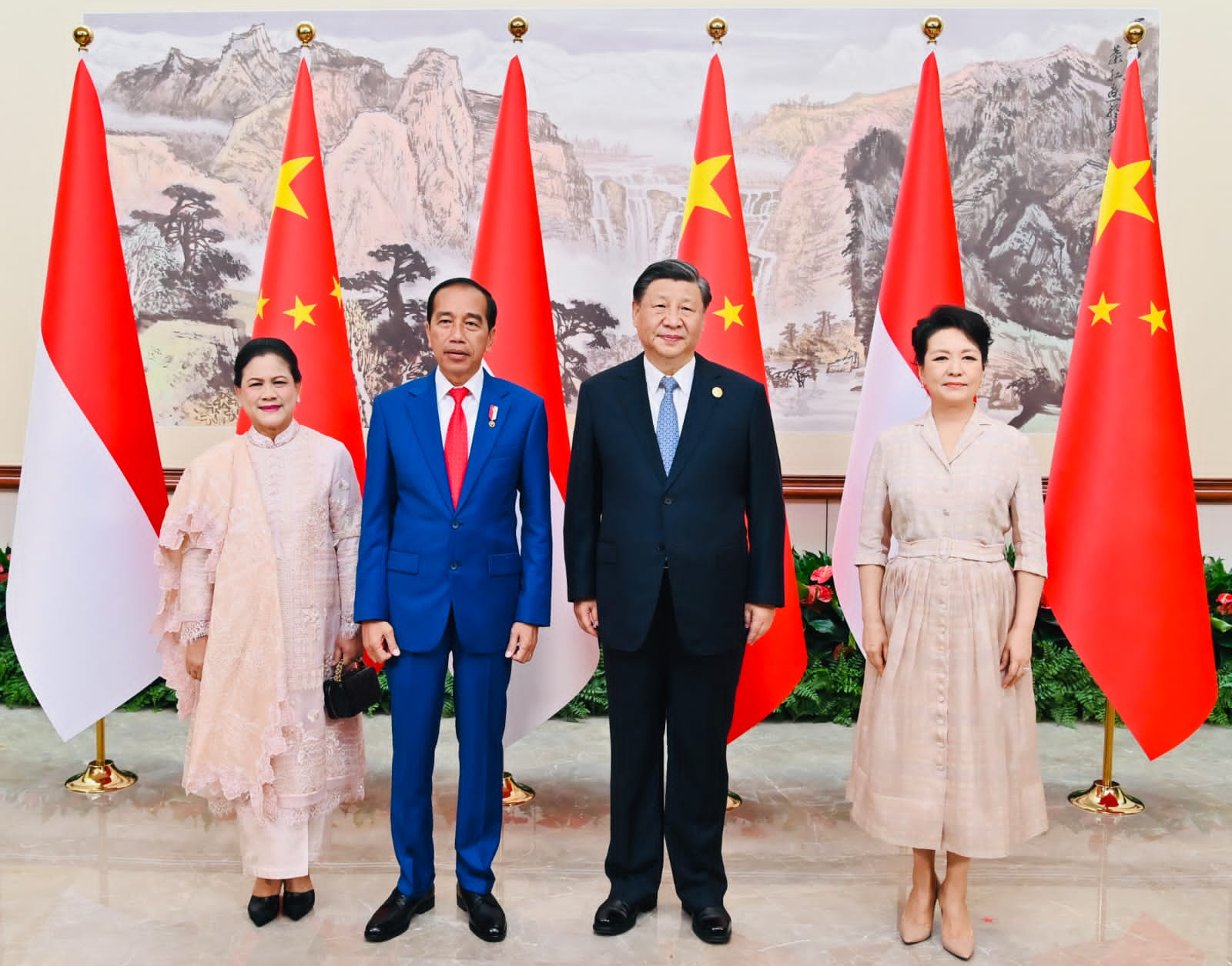

hoshitanji.com, Jakarta – Welcome to a world where stability and peace in the Indo-Pacific region take center stage! The commitment between Indonesia (RI) and China is not just a mere promise but a strategic move towards maintaining harmony and security in one of the most dynamic areas on our planet. Let’s dive into the significance, challenges, and future prospects of the RI-China commitment that aims to shape the destiny of nations for years to come.
Understanding the Importance of Stability and Peace in the Indo-Pacific Region
The Indo-Pacific region is a dynamic and diverse area encompassing numerous countries and cultures. Stability and peace in this region are crucial for economic growth, trade expansion, and overall prosperity. It serves as a vital link between the Pacific Ocean and the Indian Ocean, connecting major global economies. Maintaining stability in the Indo-Pacific is essential to prevent conflicts that could disrupt international trade routes or escalate tensions among nations. Peaceful cooperation allows for mutual benefits through increased investments, technological exchanges, and cultural dialogues.
Countries like Indonesia and China play significant roles in upholding stability in the region through diplomatic efforts, partnerships, and dialogue platforms. By fostering peaceful relations and resolving disputes amicably, they contribute to creating a conducive environment for sustainable development. Understanding the complexities of regional dynamics helps policymakers navigate challenges effectively while promoting collaboration for shared goals. The importance of stability and peace cannot be understated when considering the interconnectedness of nations in the Indo-Pacific region.
Historical Relations between Indonesia and China
Indonesia and China have a rich history of diplomatic relations that dates back centuries. Throughout the years, these two nations have engaged in cultural exchanges, trade agreements, and political dialogues that have strengthened their ties. The historical interactions between Indonesia and China have not always been smooth sailing. There were periods of conflict and tension, but both countries have shown resilience in overcoming differences to foster a more cooperative relationship.
The ancient maritime Silk Road connected the peoples of Indonesia and China through trade routes that facilitated the exchange of goods, ideas, and technologies. This historical link laid the foundation for present-day economic cooperation between the two nations. Over time, Indonesia and China have recognized the importance of maintaining stability in the region for mutual benefit. By acknowledging each other’s strategic interests and promoting dialogue, they aim to promote peace and prosperity in the Indo-Pacific region.
The Significance of the RI-China Commitment for Regional Security
The RI-China commitment holds significant implications for regional security in the Indo-Pacific. By fostering cooperation and dialogue between these two influential nations, the agreement aims to promote stability and peace in a vital geopolitical region. Indonesia and China’s collaboration can help address common challenges such as maritime security, economic development, and environmental sustainability. Through joint efforts, they can work towards preventing conflicts and enhancing trust among neighboring countries.
This commitment not only benefits Indonesia and China but also sends a positive signal to other nations in the region. It demonstrates a shared willingness to resolve differences through peaceful means and uphold international norms. In an era marked by geopolitical uncertainties, the RI-China commitment offers a ray of hope for maintaining stability in the Indo-Pacific. By prioritizing dialogue over confrontation, both countries set an example for constructive engagement that could have far-reaching effects across the region.
Key Points and Goals of the RI-China Commitment
The RI-China Commitment outlines key points and goals that aim to enhance stability and peace in the Indo-Pacific region. By strengthening cooperation between Indonesia and China, both countries seek to promote mutual trust and understanding on political, economic, and security issues. One of the primary objectives is to foster deeper diplomatic ties through regular dialogues and high-level exchanges. This commitment also underscores the importance of upholding international law and promoting peaceful resolutions to disputes.
Another crucial aspect is enhancing maritime cooperation to ensure safe navigation in the region’s waters. Moreover, joint efforts in combating transnational threats like terrorism and piracy are prioritized under this commitment. Additionally, promoting people-to-people exchanges and cultural collaboration plays a significant role in building strong bilateral relations between Indonesia and China. These key points reflect a shared vision for a stable Indo-Pacific characterized by cooperation rather than conflict.
Potential Challenges and Obstacles in Maintaining Stability and Peace in the Indo-Pacific
Ensuring stability and peace in the vast Indo-Pacific region comes with its share of challenges. One significant obstacle is the presence of territorial disputes among countries, leading to potential conflicts and tensions. The competition for strategic resources such as oil and natural gas also adds complexity to maintaining harmony. Another challenge lies in navigating the geopolitical dynamics between major powers like China and other key players in the region. Differences in political ideologies and security concerns can create a delicate balance that needs careful negotiation to avoid escalation.
Moreover, maritime security threats, including piracy and illegal fishing activities, pose a constant risk to regional stability. Collaborative efforts are essential to combat these transnational issues effectively. Additionally, historical grievances and unresolved conflicts from the past continue to linger, hindering efforts towards peaceful coexistence. Addressing these deep-rooted issues requires patience, diplomacy, and mutual understanding among nations involved.
Other Countries’ Reactions to the RI-China Commitment
As news of the RI-China commitment to maintain stability and peace in the Indo-Pacific region spreads, various countries have begun to express their reactions. Some nations view this commitment as a positive step towards regional cooperation and security. They believe that collaboration between Indonesia and China can help foster peaceful relations among neighboring countries.
On the other hand, there are also concerns raised by some countries regarding the implications of this alliance. Questions have been raised about how this partnership will influence existing power dynamics in the region. Countries may be monitoring closely to see how the RI-China commitment will impact their own interests and relationships with both Indonesia and China.
The reactions from other countries reflect a mix of optimism and caution as they observe how this new commitment between Indonesia and China unfolds in the dynamic geopolitical landscape of the Indo-Pacific region.
Conclusion
The RI-China commitment to maintain stability and peace in the Indo-Pacific is a crucial step towards fostering cooperation and security in the region. By recognizing the importance of working together to address common challenges, Indonesia and China are setting a positive example for other nations. As they navigate potential obstacles and strive towards their shared goals, their efforts will not only benefit their own countries but also contribute to regional prosperity and harmony. The commitment between RI-China signifies a promising path forward for enhancing stability and peace in the dynamic Indo-Pacific landscape of 2024. Together, they can pave the way for a brighter future built on mutual respect, understanding, and collaboration.






